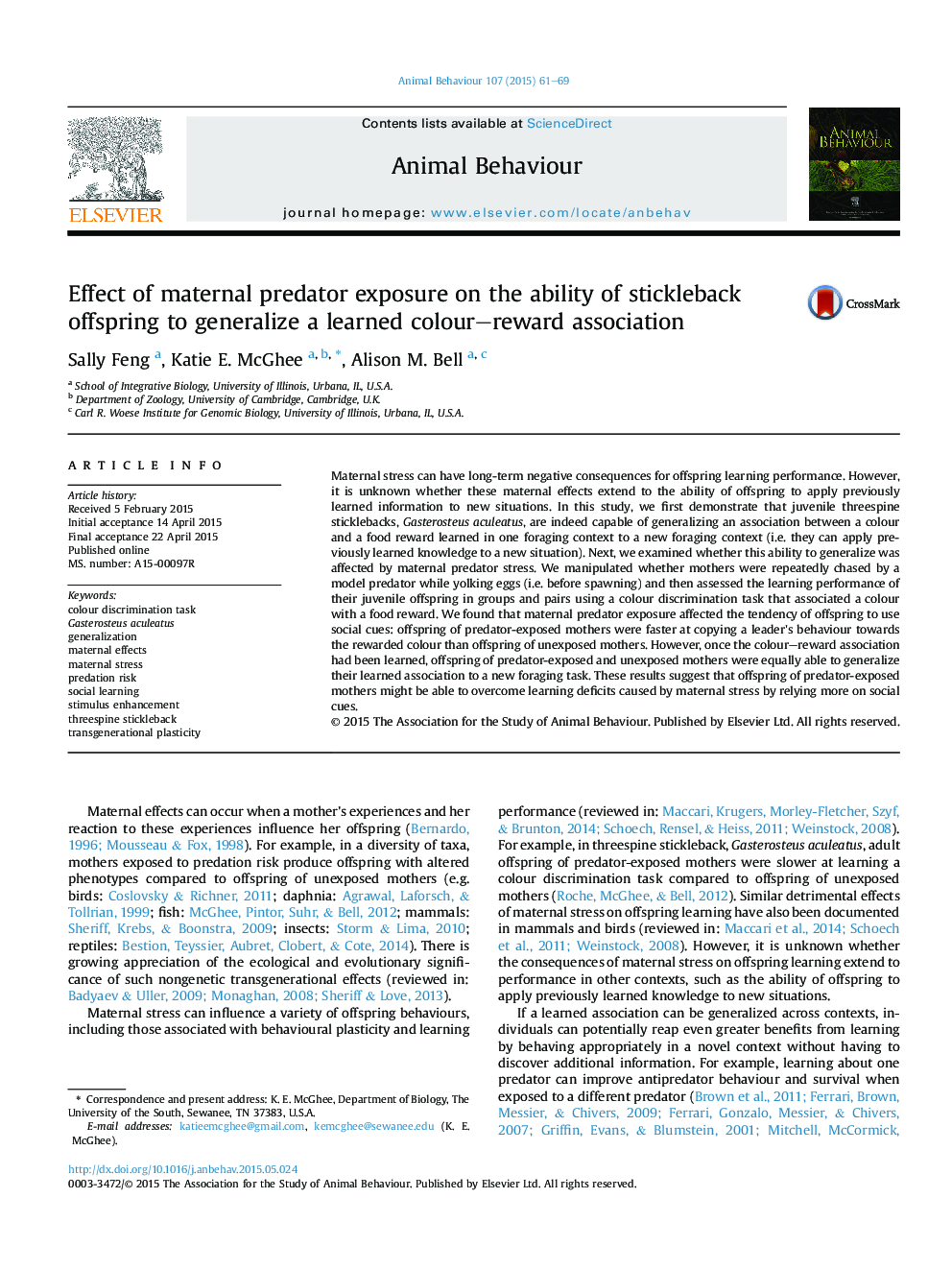| Article ID | Journal | Published Year | Pages | File Type |
|---|---|---|---|---|
| 8489700 | Animal Behaviour | 2015 | 9 Pages |
Abstract
Maternal stress can have long-term negative consequences for offspring learning performance. However, it is unknown whether these maternal effects extend to the ability of offspring to apply previously learned information to new situations. In this study, we first demonstrate that juvenile threespine sticklebacks, Gasterosteus aculeatus, are indeed capable of generalizing an association between a colour and a food reward learned in one foraging context to a new foraging context (i.e. they can apply previously learned knowledge to a new situation). Next, we examined whether this ability to generalize was affected by maternal predator stress. We manipulated whether mothers were repeatedly chased by a model predator while yolking eggs (i.e. before spawning) and then assessed the learning performance of their juvenile offspring in groups and pairs using a colour discrimination task that associated a colour with a food reward. We found that maternal predator exposure affected the tendency of offspring to use social cues: offspring of predator-exposed mothers were faster at copying a leader's behaviour towards the rewarded colour than offspring of unexposed mothers. However, once the colour-reward association had been learned, offspring of predator-exposed and unexposed mothers were equally able to generalize their learned association to a new foraging task. These results suggest that offspring of predator-exposed mothers might be able to overcome learning deficits caused by maternal stress by relying more on social cues.
Keywords
Related Topics
Life Sciences
Agricultural and Biological Sciences
Animal Science and Zoology
Authors
Sally Feng, Katie E. McGhee, Alison M. Bell,
